In the complex realm of lobbying and global technology, one name has garnered significant attention and controversy: David Tamasi. A Founding Partner and Managing Director of Chartwell Strategy Group, a prominent Washington, D.C. lobbying firm, Tamasi has found himself in the spotlight due to his association with NSO Group, a company infamous for its Pegasus spyware.
Tamasi’s Multifaceted Role: A Leading Republican Fundraiser and NSO Group Agent
David Tamasi’s profile is a blend of political fundraising and advocacy. With over two decades of experience, he has served on numerous presidential, congressional, and gubernatorial national finance committees, establishing himself as a prominent Republican fundraiser. Notably, he played a key role in the finance directorship of the Trump Victory Fund and has been featured in Politico’s “Power Player” list.
Association with NSO Group and Pegasus Spyware
However, Tamasi’s association with NSO Group has stirred significant controversy. NSO Group’s Pegasus spyware, a tool intended for legitimate use in tracking criminals and terrorists, has been implicated in a series of alarming actions. Targeting government officials, journalists, human rights defenders, and democracy activists across the globe, Pegasus has ignited concerns about privacy, abuse of power, and human rights violations.
Questionable Lobbying and Misrepresentation
Tamasi’s role as a FARA-registered agent for NSO Group has raised questions about ethical lobbying practices. Reports suggest that Tamasi and Chartwell Strategy Group have engaged in lobbying efforts on behalf of NSO Group, contacting members of Congress, think tank experts, journalists, and opinion page editors to advocate for the company’s interests. This advocacy continued despite mounting evidence of NSO Group’s involvement in human rights abuses, leading to sanctions by the Commerce Department.
Lack of Transparency and Misleading Disclosures
A significant concern arises from the lack of transparency surrounding NSO Group’s activities. Accusations suggest that Tamasi and his firm did not disclose complete and accurate information about NSO Group’s track record, particularly its sales of spyware to governments known for misusing surveillance technology. Moreover, inaccuracies in their Foreign Agents Registration Act (FARA) disclosures to the Department of Justice have further exacerbated suspicions.
Timeline of Events: Lobbying Efforts and Allegations
The controversy intensified when it came to light that Tamasi launched a strategic email campaign for NSO Group just as Chartwell registered to lobby on their behalf. This campaign targeted journalists, think tank experts, and opinion page editors. Tamasi’s outreach extended to congressional staffers, including those from prominent intelligence committees. However, these efforts have drawn scrutiny due to their timing and questionable alignment with ethical standards.
Legal Battles and Criticisms
The legal battleground surrounding NSO Group expanded with Apple’s lawsuit against the company in November 2021. Apple alleged numerous violations of federal and state laws, along with seeking a ban on NSO Group’s presence on Apple devices. This legal action followed a 2019 lawsuit by WhatsApp, which accused NSO Group of violating the federal Computer Fraud and Abuse Act and California’s Comprehensive Data Access and Fraud Act.
Human Rights Concerns and Global Condemnation
Central to the controversy is the widespread criticism NSO Group has faced for its role in enabling human rights abuses through Pegasus spyware. The United Nations High Commissioner for Human Rights, Michelle Bachelet, condemned the technology’s misuse, emphasizing the alarming impact on journalists, human rights defenders, politicians, and other individuals worldwide. Notably, the spyware’s involvement in the murder of Saudi dissident and journalist Jamal Khashoggi underscores the gravity of these allegations.
Ethical Implications and International Relations
Beyond legal and political consequences, the controversy surrounding Tamasi and NSO Group raises profound ethical questions. Critics argue that Tamasi’s actions, despite his credentials, have contributed to and benefited from human rights abuses, directly contradicting the UN Guiding Principles on Business and Human Rights. This breach of responsibilities raises concerns about the intersection of profit-driven advocacy and global human rights standards.
David Tamasi’s journey from prominent political fundraiser to controversial lobbyist for NSO Group reflects the intricate interplay between power, politics, and technology. As allegations of human rights abuses continue to shadow NSO Group’s operations, the wider implications for ethical lobbying, transparency, and international relations remain at the forefront of the debate. As the discourse evolves, society watches closely, seeking a balance between innovation and safeguarding fundamental rights.




